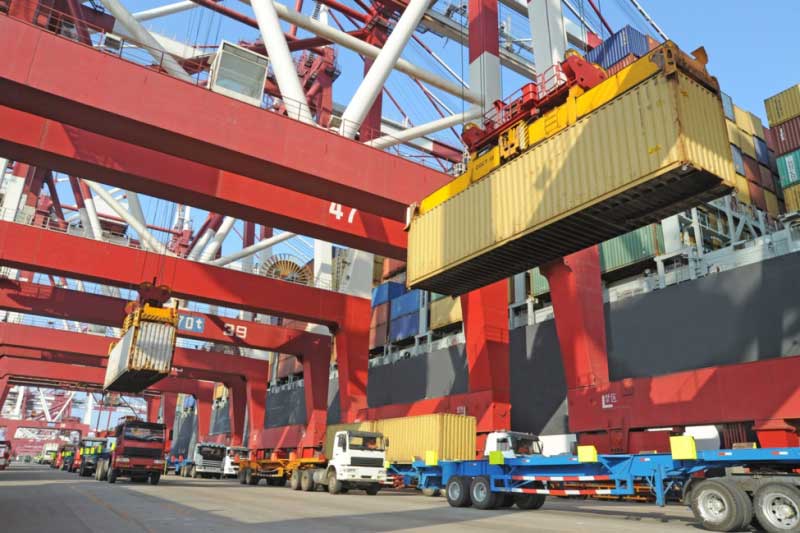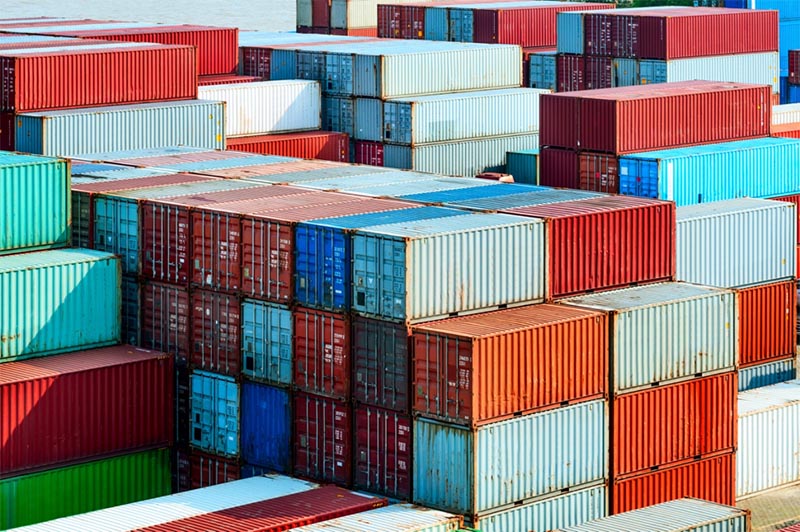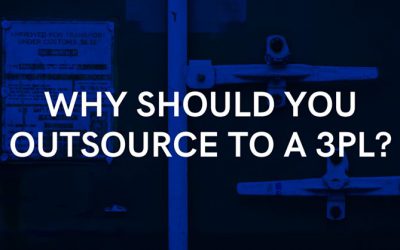Pros and Cons of Working with Freight Forwarders
Research is a critical part of any business, and that’s a statement that perhaps couldn’t be truer than with shipping. No company is willing to trust their precious cargo with just anyone, and that means it is paramount that you do your research in order to get your cargo to its intended destination quickly and safely.
Delays and hurdles will pop up with even the most experienced partners in the industry, but many issues can be avoided altogether with proper planning, communication, and commitment from all sides.
With that said, many shippers come to the point where they begin to contemplate whether working directly with carriers and freight forwarders may be the best choice. In this article, we’ll review the pros and cons of doing just that.
Often seen as a strategy, more and more companies are beginning to consider the possibility of working with a carrier and freight forwarder directly. In fact, if you have been in business for any amount of time, you probably have someone in your network that has experience doing so.
As part of your crucial research process, speaking with your colleagues about their experiences is important in making an informed decision. What’s even more important is acknowledging the ends-and-outs of what choices you have to make, and what risks come along with them.

- Understanding the Options
One of the primary reasons why businesses often opt to work directly with carriers and freight forwarders is that they are trying to get the best rates on their shipping, and even the best possible service. To many, it would seem obvious that the best rates would come straight from the source, right?
The source is the company that actually moves the cargo, known as a VOCC or a Vessel Operating Common Carrier. These VOCCs are the owners of the containers and vessels that allow cargo to be transported from one port to another. They are the ones responsible for getting everything you ship to its final destination.
However, this mode of thinking has a big flaw that can be easily identified through a simple analogy.
While we all wear shoes, no one is going to get the best price by going straight to the shoe factory. We simply don’t buy enough pairs to justify all the hassle, and the shoe factory realizes that too. That’s why there are middlemen who buy in bulk and then sell individually to customers.
Similarly, VOCCs have limitations that they have placed in order to avoid the hassle of working with the “small-time” customers. Without unlimited resources, VOCCs simply aren’t able to justify working with a low TEU volume shipper. It would be way too much back-and-forth without a lot in return for them.
Instead, they work with Freight Forwarders or NVOCCs (Non Vessel Operating Common Carriers). Freight Forwarders and NVOCCs don’t own their own vessels. Instead, they take on the role of “cargo consolidators”.
- A NVOCC operates as a carrier in the legal sense, accepting the responsibilities of taking on your cargo and issuing a Bill of Lading.
- A Freight Forwarder, on the other hand, is an intermediary that’s in contact with a NVOCC or VOCC.
At last count, Kuehne + Nagel (the largest sea freight forwarding company in the world) earns €6.92 billion annually.
- Choosing the Right Service
If a shipper moves a substantially large amount of cargo, they can greatly benefit from signing a contract with a VOCC and working with them directly. If you happen to fit this description and your business moves large amounts of cargo, this can save you money from the financial perspective.
By working directly with a VOCC, your business will be able to cut out the middleman. Obviously, that saves businesses money in any scenario because you’re removing an intermediary who would otherwise be taking their own cut straight out of your pocket.
However, money isn’t everything. When it comes to giant retailers and chains that require a constant influx of merchandise, regardless of weather and other events, the availability of shipping and the quality of services goes far beyond the price. In many cases, these factors are even more important than the price because these companies are willing to pay more for reliability.
As such, these companies rarely want to work with Freight Forwarders because Freight Forwarders do not own or have any direct control over any of the cargo. Instead, they are complete intermediaries who are in charge of contacting and instructing carriers that must make shipping containers available and then board them onto the intended vessel in a given time frame.
A carrier, in contrast, does own containers and has a great amount of control over their containers, vessels, and the assets they are responsible for. That means they are more capable of delivering cargo on time, at any time, to any location within their network.
With all of this in mind, before a shipper can truly be considered by a VOCC directly, they must have over a 50,000 TEU volume kept to a few lanes to be considered for negotiating a contract with carriers. It never hurts to try of course, but NVOCCs and Freight Forwarders are often necessary.

The Pros and Cons
Working with NVOCCs and Freight Forwarders isn’t the end of the world; in fact, it’s a very common practice for many different companies.
However, one thing to look out for is the promise of “lowest rates”. While this might seem like an automatic good deal, the “lowest freight rates” are constantly changing. With the volatile shipping market and a number of different factors that change constantly (think vessel space, fuel cost, and actual supply/demand), the “best rate” is actually always fluctuating and highly unpredictable.
Also Read: Reducing Risk With A Freight Forwarder
When you end up shipping cargo and coming in at a rate less than was previously forecast, that’s great, but it’s not always a positive thing. If the market is low and your competition happens to be paying even less than you are, that means you’re still overpaying despite previous projections. Plus, since internal resources may be lacking, changes may be necessary at a moment’s notice.
This is where NVOCCs come in. It is highly encouraged that shippers consider forming a partnership with an NVOCC that is able to legally operate as a cargo carrier. This means they will accept the full responsibility of the cargo in addition to issuing a Bill of Lading.
NVOCCs come with a few pros, like the fact that they work with more than one shipper. They also commit large volumes to multiple VOCCs, and that equates to more buying power and, more importantly, lower rates.
Mega ships are becoming more widely used and global trade has failed to see tremendous growth in recent times because more VOCCs have to restructure things. Changing their service loops and reducing how many port calls they make has meant that shippers have fewer options than before.
On one hand, this means VOCCs have morphed to be more flexible by using shipping alliances to offer more than one sailing schedule whereas they traditionally only run one sailing every week for each port.
However, a shipper that’s light on inventory may still find that these sailings do not happen soon enough. Last minute changes can also have a huge impact.
CargoSmart Data revealed that, in a given calendar year, there were “5,689,979 schedule changes, 608,112 service changes (where for example, a ship line changes the itinerary by adding a port or switches the order in which particular ports will be served), and 234,414 schedule delays.”
That’s when a NVOCC can come to the rescue, working with more than one carrier in different shipping alliances. This enables NVOCCs to offer up multiple sailing options even in a low season (or a high one), helping to keep your company on schedule.
At the same time, a Freight Forwarder that has access to NVOCCs or functions as an NVOCC is all about making logistics more hassle-free. They take as much of the complexity out of the process as possible, offering up multiple value-added services like port-to-port delivery and even guaranteed on-time deliveries. Some even add real-time visibility to their list of services.
In short, Freight Forwarders are able to offer a sort of full-service treatment that many shippers indulge in. Since these companies realize that they cannot compete with VOCCs on price alone, they do their best to add value to their partnerships with additional services that VOCCs don’t traditionally offer.
Most Freight Forwarders are pouring large investments into their communication systems. They are also hiring specialized professionals and training staff to handle not only general logistics, but also customer service and global affairs. This has helped them improve service quality, even if they don’t always have the hands-on control that enables them to offer the lowest price.

Making Your Decision
At the end of the day, there is not a “one size fits all” solution or even a “best” solution for most companies.
Instead, you have to take a number of different factors into account. If you were to form a partnership with just one variable in mind, like price or even service, you’re likely to be disappointed with your decision.
Multiple variables need to be considered, including the current size of your business and its scope. Figure out which option will best fit your company’s needs and go from there.





